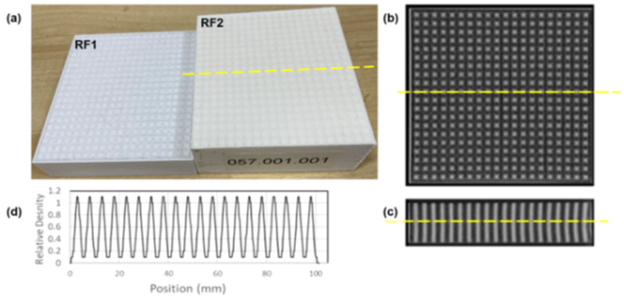Range modulators with variable density enhancing precision to control dosage and spatial distribution of radiation.
Problem:
Particle radiation therapy, increasingly standard for eligible patients, requires precise energy selection to effectively target tumors. Conventional range modulators, primarily varying in thickness, lack the precision needed, especially for irregular tumor shapes with varying dose requirements across regions.
Technology:
Using the PixelPrint method developed at Penn, inventors have created a process and system for manufacturing 3D-printed modulators with heterogeneous densities, which enable control over spatial dose distribution in radiation therapy. This approach facilitates the design of personalized range modulators tailored to the specific tumors of individual patients. Beyond custom-made modulators for each patient, the technology also supports the use of modular units with varied densities. These pre-made components can be assembled into a modulator customized for each patient, streamlining the process while maintaining personalized care.
Advantages:
- Enhanced precision through density and thickness variations for optimal energy selection
- Tailored designs to accommodate diverse patient needs
- Potential use of modular units for adaptable usage by medical practitioners in ultra-fast radiation delivery

Fig.1 (a) 3D printed heterogeneous density range modulating devices. (b) Axial view of CT scan and (c) saggital view of CT scan. (d) Density profiles across the device.
Stage of Development:
- Proof of Concept
- Bench Prototype
- Minimum Viable Product
Intellectual Property:
- US and Chinese Applications Filed
Case ID:
23-10370-TpNCS
Web Published:
6/11/2024
Patent Information:
| App Type |
Country |
Serial No. |
Patent No. |
File Date |
Issued Date |
Expire Date |